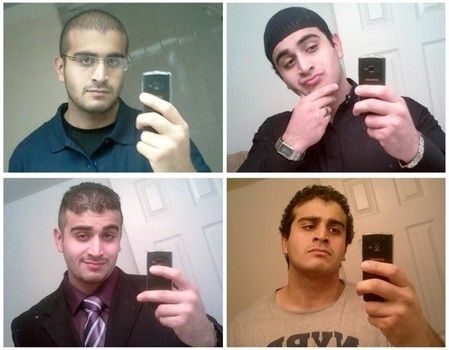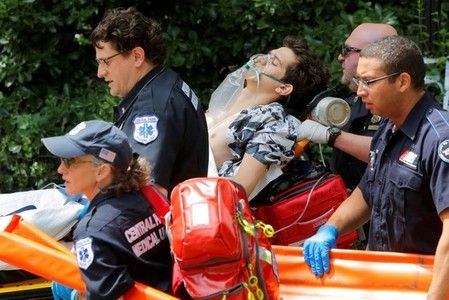Advertisement
Mateen altered looks, researched anti-psychotic drugs before attack

By Bernie Woodall
PORT ST. LUCIE, Fla. (Reuters) – On the morning before the massacre at Orlando’s Pulse gay nightclub, shooter Omar Mateen drastically altered his appearance, shaving his head and face, and seemed agitated and surly, said an acquaintance who saw him that day.
Mateen also talked about staying up all night to do online research into anti-psychosis medication, the acquaintance said in a interview. The acquaintance requested anonymity, saying authorities had asked him to keep quiet.
The 29-year-old gunman, who killed 49 people and wounded 53 in the deadliest mass shooting in modern U.S. history, called himself an “Islamic soldier” and pledged allegiance to the Islamic State militant group before being fatally shot by police after a three-hour siege.
The FBI would not comment on the acquaintance’s remarks, but several senior U.S. sources told Reuters the investigation was moving more toward the belief that Mateen’s motives were personal rather than political.
“It looks increasingly like this may have been the act of a seriously troubled individual whose personal problems dwarfed any last-minute inspiration from radical groups,” said a senior U.S. official familiar with the investigation, speaking on condition of anonymity.
Authorities believe Mateen, a U.S. citizen of Afghan descent, was self-radicalized and acted alone in the rampage. He seems to have been a troubled youth, disciplined dozens of times in school and had his aspirations to become a policeman dashed when he was expelled from the academy.
The acquaintance, a resident at the PGA Village in Port St. Lucie, Florida, where Mateen worked as a gate security guard, said he noticed signs of deteriorating behavior a few weeks before the massacre.
He had passed the gate for three years, meeting Mateen several times a week and exchanging friendly small talk. About three weeks before the attack, he noticed Mateen seemed agitated and asked him if he was all right.
Mateen said he was worn out from staying up all night to research psychiatric medication, although he did not say he was taking specific drugs.
“He’d been real worried about whether or not he’d slipped into psychosis,” the acquaintance said. “He wasn’t as friendly. He was obsessed with researching medication online.”
The acquaintance said he thought it was strange that Mateen would confide to him his concerns about his mental health, because they were not very close and he did not know anything about Mateen’s personal life, including whether he was married or had children.
“The last month, he looked worried, he looked upset, he looked confused,” the acquaintance said. “He didn’t seem himself.”
In the early morning, about 18 hours before the June 12 attack, the acquaintance said he drove up to the gate but Mateen was not there to open it as usual.
In a couple of minutes, he appeared, silent and with a completely transformed look – a shaved head and face, without his usual short whiskers and glasses.
When asked if he was OK, the usually polite Mateen responded: “What’s it to you, anyway?”
(Additional reporting by Jon Walcott and Mark Hosenball in Washington; Editing by Peter Cooney)












